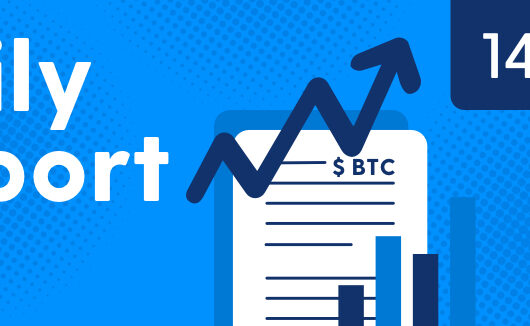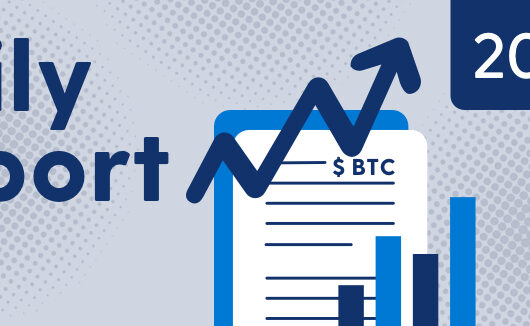Weekend recap: MicroBT launches three new Bitcoin miners ahead of halving

With the Bitcoin halving only a couple of weeks away, we’ve seen pressure mount for miners and producers of mining equipment alike. We’ve got the latest on the growing rivalries, more on the Chinese digital yuan, and a hoard of nasty, scam-related ads around Bitcoin on Facebook to watch out for.
MicroBT launches three new Bitcoin miners ahead of halving
MicroBT, a Chinese Bitcoin miner manufacturer has launched three new machines, positioning themselves as worthy rivals to industry leader, Bitmain.
MicroBT COO Jianbing Chen announced the launch of WhatsMiner M30S+, M30S++ and the M31S+ in an online conference on Friday. Chen asserted the Bitcoin mining hardware market has now entered the “3X era”, in reference to three new features of the new WhatsMiners: “low power consumption ratio, high stability, and one-year long warranty service.”
MicroBT reported that the power consumption ratio of WhatsMiner M30 series would be lower than 50W/T (watts per terahash), emphasising that a lower W/T ratio helps Bitcoin miners with a higher gross margin.
Chen also provided details on MicroBT’s sales numbers, saying the firm sold 600,000 units of its WhatsMiner M20 series in 2019 as opposed to 300,000 units of WhatsMiner M3 series in 2018.
He said the 2019 sales figures accounted for 35% of the Bitcoin’s network total computing power as compared to 9% in 2018.
The launch of new WhatsMiner machines comes ahead of the Bitcoin halving, which is expected to take place in mid-May. The halving will see the amount of Bitcoin produced with each new transaction block fall from 12.5 BTC to 6.25 BTC. Bitcoin miners are concurrently updating their rigs to prepare for the halving and maintain their profit levels – these new machines could help them.
Understand the Bitcoin hash rate and what it means here. Find out about the Luno Bitcoin wallet here.
Bank of China says digital Yuan will not lead to inflation
The crypto industry and financial world have grown increasingly curious about the Bank of China’s secretive digital currency tests, following leaked photos and small tidbits of information which surfaced last week on social media and news sites.
The bank recently released an official explanation of the proposed digital Yuan and how it’ll work. A bank representative confirmed on the China Central Television on 19 April that the new digital currency (also referred to as DC/EP – “digital currency/electronic payment”) pilot test has been carried out in the cities of Shenzhen, Suzhou, Xiongan new area, Chengdu, and the future site of the winter Olympics.
The representative clarified that although tests have taken place, it should not be expected that the digital Yuan has been officially issued for public use. They added, “The current closed test of digital Yuan will not affect the commercial operation of listed institutions, nor will it affect the RMB issuance and circulation system, financial market and social economy outside the test environment.”
In an effort to mitigate the potential for the central bank’s digital currency to be oversold, commercial institutions will pay a 100% reserve to the central bank. Essentially, at the time of issuance, the People’s Bank of China will first exchange the digital currency to banks or other operating agencies. Following this, the agencies will release the digital currency into public circulation.
The bank has completed the top layer of design, with the digital currency adopting a two-layer architecture and two-tier delivery system. If the payment functions of online banking and payment platforms were to go down due to poor network signals, DC/EP’s dual offline technology is capable of ensuring the digital Yuan will work as effectively as the paper Yuan.
The bank explained that “In the absence of a network, as long as two mobile phones equipped with a DC/EP digital wallet are touched, the transfer or payment function can be realised.”
They continued to explain the digital Yuan is not tied to any bank account and that it’s free from the control of the traditional banking system.
Unlike other cryptocurrencies, the digital Yuan is backed by the country’s credit as it’s being launched by China’s central bank. The bank argued that compared to Bitcoin, their new digital currency will have greater inherent stability.
Keep your eyes peeled on our channels to learn more about central bank digital currencies (CBDCs) and the latest developments in the space.
Japanese advertising giant advocates for content creators to use blockchain tech
One of the country’s largest advertising firms is making it easier to recognise content creators on popular apps as a market force, even if they use copyrighted material in their work.
According to an article in the Nikkei newspaper, Dentsu has joined forces with Kadokawa Ascii research laboratories and others to begin proof-of-concept (PoC) for rewards to independent content creators using blockchain technology. The PoC is targeting those commenting on ten popular Japanese comics, Manga, with livestream apps.
Creators on YouTube and other popular streaming apps have reported issues with videos being demonetised or removed after the use (however short) of original artists’ work. With regards to Manga commentary videos, some violate existing copyright laws in Japan.
Dentsu and Kadokawa hope to make it easier for people using livestream with possibly copyrighted material by using blockchain technology and targeting secondary creators who comment on Manga through livestream apps, and tertiary creators who may translate the commentary to foreign languages. The partnership is designed to extrapolate on the range of allowed materials on these platforms.
Dentsu representative, Jyunichi Suzuki said, “We want to integrate fans’ work that had previously not been valued as a legitimate market.”
The Japanese government has also indicated their interest in managing creator content with blockchain technology. The Ministry of Economy, Trade, and Industry started a program last year to provide companies with similar initiatives up to 50 million yen, amounting to roughly $460,000.
Beware the fake celebrity interview scams on Facebook
British TV presenter and former X-Factor star, Rylan Clark-Neal, sounded the alarm to his 1.6 million followers about a “fake interview” video in circulation claiming he’d made “millions from Bitcoin.”
There’s a fake interview going around on Facebook and social platforms claiming to be the daily mirror which it isn’t saying how I’ve made millions from bitcoin. Don’t fall for it ??
— Rylan Clark-Neal (@Rylan) April 18, 2020
Over the weekend, the former Celebrity Big Brother star tweeted that a fraudulent interview impersonating UK publication, the Daily Mirror, was circulating on Facebook.
The warning comes amid a slew of Bitcoin scams using targeted ads on Facebook to distribute fake interviews wrongfully asserting entertainment celebrities have made small fortunes through Bitcoin investments.
A Twitter user commenting on Clark-Neal’s post said he’d been receiving emails claiming 66-year old English ‘comedian’, Jim Davidson “bounced back from Covid by investing in cryptocurrency.” A number of other users commented on his thread saying they had too.
I keep getting emails about how Jim Davidson apparently “bounced back by using cryptocurrency” closely followed by another email saying Jim Davidson “bounced back from Covid by investing in cryptocurrency”. All very strange.
— Scott Mackay (@scottfmackay) April 18, 2020
At the end of March, the Philippine Securities and Exchange Commission (SEC) warned of a crypto Ponzi scheme targeting Filipino, Australian, and European investors through fake celebrity endorsements on Facebook.
The SEC’s warning came within days of French football star, Kylian Mbappé filing a complaint against an alleged scam network for impersonating him in a fake interview, purporting he made millions from crypto.
At the beginning of March, a former employee turned-whistleblower of a 200-employee Bitcoin trading scam operating in Kyiv, Ukraine spoke out about an alleged $70 million operation. The scam targeted investors in Australia, the UK and New Zealand, luring victims with fake news ads featuring celebrities including Hugh Jackman, Gordon Ramsey and Martin Lewis, who sued Facebook over being impersonated by Bitcoin scammers on the platform in 2018.
After a potential victim responds to an ad, they’re then contacted by call-centre workers promising unbelievable returns on investments in crypto, foreign exchange, and other commodities. In order to further entice potential victims, fake profit statements were fabricated. Call centre workers were shockingly encouraged to make at least 300 calls per day to “squeeze the money” from victims down to their very “last cent.”
Keep an eye on our channels to learn more about how to protect yourself against scammers and phishers.
Singapore won’t tax airdrops or hard forks under new crypto guidelines
The Inland Revenue Authority of Singapore’s (IRAS)’s new e-tax guide published on Friday fills in the tax gaps for so-called “digital tokens”, a blanket term for three crypto types. These are payment tokens, used to buy goods and services; utility tokens, which represent a right to goods and services; and security tokens, or digital securities. Each has a new definition and corresponding tax treatment from the IRAS.
The guide outlines a fragmented approach for an industry still in its infant stages, useful for consumers and businesses, along with ICO issuers. The tax guide also clarified protocol for obscure crypto events. For example, IRAS announced they will not levy income taxes against airdropped payment tokens or those that come from a blockchain hard fork. Nonetheless, like other payment tokens, non-traditionally delivered crypto will be taxable on transactions.
IRAS’ guide considers payment tokens like Bitcoin to be “intangible property” as opposed to legal tender. If a consumer pays in Bitcoin they are effectively engaging in “barter trade” for which the goods and services are taxed, not the payment token itself. The same goes for businesses who can presumably value their goods’ tax burden against government-issued money metrics.
Things get hairy when determining the tax burden of a good or service whose value is natively represented in crypto. For example, if a contractor has agreed to perform a job for 3 Bitcoins, they have no surefire way of calculating the tax because the IRAS has no “methodology to value payment tokens.”
The IRAS suggests taxpayers self-determine a “reasonable and verifiable” exchange rate from widely available services like Coinbase and Binance.
On the flip side, utility token transactions are “unlikely” to trigger a taxable event for the users, whose acquisition as a right to future services “will be treated as a prepayment.” Utility tokens’ use will be a deductible event under the guide.
Security tokens find themselves under the same loose tax laws Asia’s tax haven applies to a variety of other securities. Singapore levies no capital gains tax on securities of any kind, and sparingly taxes dividends depending on the issuer, leaving security tokens taxable only when classified as a “revenue asset.”
Singapore’s investor-friendly tax scheme leaves security token ICO issuers with the entirety of their capital raise. Conversely, ICOs issuing utility tokens will find their proceeds are deferred revenue that’s taxable as soon as they deliver the goods. Payment token ICOs issuers are expected to pay immediately, with the guide noting such schemes are “uncommon.” They continued to say “an examination of the case facts may be required.”
 Discover
Discover Help Centre
Help Centre Status
Status Company
Company Careers
Careers Press
Press


